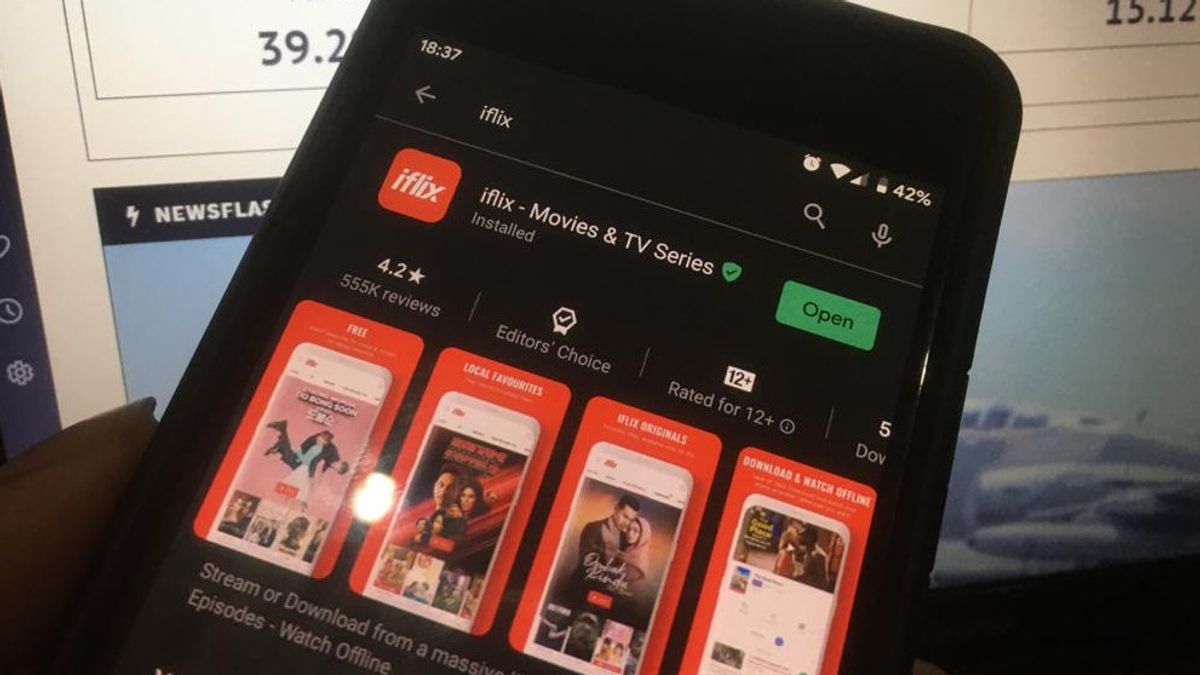JAKARTA - In the midst of the coronavirus or COVID-19 pandemic, video on demand platforms should be selling well because many people choose to stay at home. However, bad news was befalling Iflix.
As preached by Nikkei Asia, Monday, June 15, dubbed the Netflix Southeast Asia, Iflix must be discouraged because it can no longer survive the onslaught of the economic impact of COVID-19. The company is reportedly in danger of going bankrupt because it continues to lose money and has mounting debt.
It is known that in 2018 as reported by Deal Street Asia, the Malaysia-based company recorded a loss of 158.1 million United States (US) dollars. This was due to the action of burning his money which reached 25.5 million US dollars, which resulted in a debt of approximately 68.6 million US dollars.
However, in September 2019, Iflix has estimated that the company's money will only last until November 30, 2019. Meanwhile, Iflix's cash reserves are only 12.7 million US dollars left.
To date, Iflix has never announced the issue of additional funding, but the company plans an IPO on July 31, 2020 for as much as US $ 47.5 million, but there is no further news. Therefore, Iflix announced that it will sell its platform to investors to cover debts. The potential acquirers are believed to include companies based in China.
Prior to this, Iflix had also left Patrick Grove, who was a high-ranking Iflix leader from 2019 and resigned from the board on April 9. Likewise Luke Elliott, co-founder of Iflix, also resigned from the company's board on the same day.
Grove and Elliott are also founders of the Catcha Group, major shareholders on the Iflix platform. Two other Iflix directors also resigned on April 9, namely David Nairn and Mark Andrew Licciardo.
Likewise with its employees, in the same month the platform also laid off a number of staff due to economic uncertainty amid the COVID-19 pandemic.
"The industry is not immune to unprecedented circumstances. Our decision to reduce the number of company employees came after careful consideration and in conjunction with other cost-cutting measures, to enable the company to survive this indefinite and uncertain period. , "said Iflix.
Previously it was reported, the same fate was also experienced by the video on demand platform HOOQ some time ago. SingTel's service is only five years old. Though the investors behind Hooq are impressive. From SingTel (Singapore telecommunication king), Warner Bros Entertainment to Sony Pictures.
HOOQ shareholders decided to go out of business because the business was not growing as well as competitor Netflix, so it could not cover operating costs.
"Since this company was founded, five years ago, there have been significant structural changes in the over-the-top (OTT) video market and its competitive landscape," explained HOOQ in its official statement recently.
The English, Chinese, Japanese, Arabic, and French versions are automatically generated by the AI. So there may still be inaccuracies in translating, please always see Indonesian as our main language. (system supported by DigitalSiber.id)













